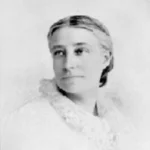 | |
The Day of My Death | |
| Author | Elizabeth Stuart Phelps |
|---|---|
| Published |
1869
|
| Language | English |
| Nationality | American |
| Genre | Feminism |
1869 Short Story
The Day of My Death
The Day of My Death is an English Feminism short story by American writer Elizabeth Stuart Phelps. It was first published in 1869. The Day of My Death was published in Phelps' collection, Men, Women, and Ghosts (1869).
The Day of My Death
by Elizabeth Stuart Phelps
Alison was sitting on a bandbox. She had generally been sitting on a bandbox for three weeks,or on a bushel-basket, or a cupboard shelf, or a pile of old newspapers, or the baby’s bath-tub. On one occasion it was the baby himself. She mistook him for the rag-bag.
If ever we had to move again,which all the beneficence of the Penates forbid!my wife should be locked into the parlor, and a cargo of Irishwomen turned loose about the premises to “attend to things.” What it is that women find to do with themselves in this world I have never yet discovered. They are always “attending to things.” Whatever that may mean, I have long ago received it as the only solution at my command of their superfluous wear and tear, and worry and flurry, and tears and nerves and headaches. A fellow may suggest Jane, and obtrude Bridget, and hire Peggy, and run in debt for Mehetable, and offer to take the baby on ‘Change with him, but has he by a feather’s weight lightened Madam’s mysterious burden? My dear sir, don’t presume to expect it. She has just as much to do as she ever had. In fact, she has a little more. “Strange, you don’t appreciate it! Follow her about one day, and see for yourself!”
What I started to say, however, was that I thought it over often,I mean about that invoice of Irishwomen,coming home from the office at night, while we were moving out of Artichoke Street into Nemo’s Avenue. It is not pleasant to find one’s wife always sitting on a bandbox. I have seen her crawl to her feet when she heard me coming, and hold on by a chair, and try her poor little best to look as if she could stand twenty-four hours longer; she so disliked that I should find a “used-up looking house” under any circumstances. But I believe that was worse than the bandbox.
On this particular night she was too tired even to crawl. I found her all in a heap in the corner, two dusters and a wash-cloth in one blue-veined hand, and a broom in the other; an old corn-colored silk handkerchief knotted over her hair,her hair is black, and the effect was good,and her little brown calico apron-string literally tied to the baby, who was shrieking at the end of his tether because he could just not reach the kitten and throw her into the fire. On Alison’s lap, between a pile of shirts and two piles of magazines, lay a freshly opened letter. I noticed that she put it into her pocket before she dropped her dusters and stood up to lift her face for my kiss. She forgot about the apron-strings, and the baby tipped up the wrong way, and hung dangling in mid-air.
After we had taken tea,that is to say, after we had drawn around the ironing-board put on two chairs in the front entry, made the cocoa in a tin dipper, stirred it with a fork, and cut the bread with a jack-knife,after the baby was fairly off to bed in a champagne-basket, and Tip disposed of, his mother only knew where, we coaxed a consumptive fire into the parlor grate, and sat down before it in the carpetless, pictureless, curtainless, blank, bare, soapy room.
“Thank fortune, this is the last night of it!” I growled, putting my booted feet against the wall, (my slippers had gone over to the avenue in a water-pail that morning,) and tipping my chair back drearily,my wife “so objects” to the habit!
Allis made no reply, but sat looking thoughtfully, and with a slightly perplexed and displeased air, into the sizzling wet wood that snapped and flared and smoked and hissed and blackened, and did everything but burn.
“I really don’t know what to do about it,” she broke silence at last.
“I’m inclined to think there’s nothing better to do than to look at it.”
“No; not the fire. O, I forgotI haven’t shown it to you.”
She drew from her pocket the letter which I had noticed in the afternoon, and laid it upon my knee. With my hands in my pocketsthe room was too cold to take them outI read:
Dear Cousin Alison:
“I have been so lonely since mother died, that my health, never of the strongest, as you know, has suffered seriously. My physician tells me that something is wrong with the periphrastic action, if you know what that is,” [I suppose Miss Fellows meant the peristaltic action,] “and prophesies something dreadful, (I’ve forgotten whether it was to be in the head, or the heart, or the stomach,) if I cannot have change of air and scene this winter. I should dearly love to spend some time with you in your new home, (I fancy it will be drier than the old one,) if convenient to you. If inconvenient, don’t hesitate to say so, of course. I hope to hear from you soon.
“In haste, your aff. cousin,
“Gertrude Fellows.
“P.S.I shall of course insist upon being a boarder if I come.
“G.F.” “Hum-m. Insipid sort of letter.”
“Exactly. That’s Gertrude. No more flavor than a frozen pear. If she had one distinguishing peculiarity, good or bad, I believe I should like her better. But I’m sorry for the woman.”
“Sorry enough to stand a winter of her?”
“If we hadn’t just been through this moving! A new house and all,nobody knows how the flues are yet, or whether we can heat a spare room. She hasn’t had a home, though, since Cousin Dorothy died. But I was thinking about you, you see.”
“O, she can’t hurt me. She won’t want the library, I suppose; nor my slippers, and the small bootjack. Let her come.”
My wife sighed a small sigh of relief out from the depths of her hospitable heart, and the little matter was settled and dismissed as lightly as are most little matters out of which grow the great ones.
I had just begun to dream that night that Gertrude Fellows, in the shape of a large wilted pear, had walked in and sat down on a dessert plate, when Allis gave me a little pinch and woke me.
“My dear, Gertrude has one peculiarity. I never thought of it till this minute.”
“Confound Gertrude’s peculiarities! I want to go to sleep. Well, let’s have it.”
“Why, you see, she took up with some Spiritualistic notions after her mother’s death; thought she held communications with her, and all that, Aunt Solomon says.”
“Stuff and nonsense!”
“Of course. But, Fred, dear, I’m inclined to think she must have made her sewing-table walk into the front entry; and Aunt Solomon says the spirits rapped out the whole of Cousin Dorothy’s history on the mantel-piece, behind those blue china vases,you must have noticed them at the funeral,and not a human hand within six feet.”
“Alison Hotchkiss!” I said, waking thoroughly, and sitting up in bed to emphasize the opinion, “when I hear a spirit rap on my mantel-piece, and see my tables walk about the front entry, I’ll believe that,not before!”
“O, I know it! I’m not a Spiritualist, I’m sure, and nothing would tempt me to be. But still that sort of reasoning has a flaw in it, hasn’t it, dear? The King of Siam, you know”
I had heard of the King of Siam before, and I politely informed my wife that I did not care to hear of him again. Spiritualism was a system of refined jugglery. Just another phase of the same thing which brings the doves out of Mr. Hermann’s empty hat. It might be entertaining if it had not become such an abominable imposition. There would always be nervous women and hypochondriac men enough for its dupes. I thanked Heaven that I was neither, and went to sleep.
Our new house was light and dry; the flues worked well, and the spare chamber heated admirably. The baby exchanged the champagne-basket for his dainty pink-curtained crib; Tip began to recover from the perpetual cold with which three weeks’ sitting in draughts, and tumbling into water-pails, and playing in the sink, had sweetened his temper; Allis forsook her bandboxes for the crimson easy-chair (very becoming, that chair), or tripped about on her own rested feet; we returned to table-cloths, civilized life, and a fork apiece.
In short, nothing at all worth mentioning happened, till that one night,I think it was our first Sunday,when Allis waked me at twelve o’clock with the announcement that some one was knocking at the door. Supposing it to be Bridget with the baby,croup, probably, or a fit,I unlocked and unlatched it promptly. No one was there, however; and telling my wife, in no very gentle tone, if I remember correctly, that it would be a convenience, on such cold nights, if she could keep her dreams to herself, I shut the door distinctly and returned to my own.
In the morning I observed a little white circle about each of Allis’s blue eyes, and after some urging she confessed to me that her sleep had been much broken by a singular disturbance in the room. I might laugh at her if I chose, and she had not meant to tell me, but somebody had rapped in that room all night long.
“On the door?”
“On the door, on the mantel, on the foot of the bed, on the head-board,Fred, right on the head-board! I listened till I grew cold listening, but it rapped and it rapped, and by and by it was morning, and it stopped.”
“Rats!” said I.
“Then rats have knuckles,” said she.
“Mice!” said I, “wind! broken plaster! crickets! imagination! dreams! fancies! blind headache! nonsense! Next time wake me up, and fire pillows at me till I’m pleasant to you. Now I’ll have a kiss and a cup of coffee. Any sugar in it?”
Tip fell down the cellar stairs that day, and the baby swallowed a needle and two gutta-percha buttons, which I had been waiting a week to have sewed on my vest, so that Alison had enough else to think about, and the little incident of the raps was forgotten. I believe it was not recalled by either of us till after Gertrude Fellows came.
It was on a Monday and in a drizzly storm that I brought her from the station. She was a thin, cold, phantom-like woman, shrouded in water-proofs and green barège veils. Why is it that homely women always wear green barège veils? She did not improve in appearance when her wraps were off, and she was seated by my parlor grate. Her large green eyes had no speculation in them. Her mouthan honest mouth, that was one mercyquivered and shrank when she was addressed suddenly, as if she felt herself to be a sort of foot-ball that the world was kicking about at pleasure,your gentlest smile might prove a blow. She seldom spoke unless she were spoken to, and fell into long reveries, with her eyes on the window or the coals. She wore a horrible sort of ruff,”illusion,” I think Allis called it,which, of all contrivances that she could have chosen to encircle her sallow neck, was exactly the most unbecoming. She was always knitting blue stockings,I never discovered for what or whom; and she wore her lifeless hair in the shape of a small toy cartwheel, on the back of her head.
However, she brightened a little in the course of the first week, helped Alison about the baby, kept herself out of my way, read her Bible and the “Banner of Light” in about equal proportion, and became a mild, inoffensive, and, on the whole, not unpleasant addition to the family.
She had been in the house about ten days, I think, when Alison, with a disturbed face, confided to me that she had spent another wakeful night with those “rats” behind the head-board; I had been down with a sick-headache the day before, and she had not wakened me. I promised to set a trap and buy a cat before evening, and was closing the door upon the subject, being already rather late at the office, when the expression of Gertrude Fellows’s face detained me.
“If I were you, Iwouldn’treally buy a very expensive trap, Mr. Hotchkiss. It will be a waste of money, I am afraid. I heard the noise that disturbed Cousin Alison”; and she sighed.
I shut the door with a snap, and begged her to be so good as to explain herself.
“It’s of no use,” she said, doggedly. “You know you won’t believe me. But that makes no difference. They come all the same.” “They?” asked Allis, smiling. “Do you mean some of your spirits?”
The cold little woman flushed. “These are not my spirits. I know nothing about them. I did not mean to obtrude a subject so disagreeable to you while I was in your family; but I have seldom been in a house in which the Influences were so strong. I don’t know what they mean, nor anything about them, but just that they’re here. They wake me up, twitching my elbows, nearly every night.”
“Wake you up how?”
“Twitching my elbows,” she repeated, gravely.
I broke into a laugh, from which neither my politeness nor the woman’s heightened color could save me, bought the cat and ordered the rat-trap without delay.
That night, when Miss Fellows had “retired,”she never “went to bed” in simple English like other people,I stole softly out in my stockings and screwed a little brass button outside of her door. I had made a gimlet-hole for it in the morning when our guest was out shopping; it fitted into place without noise. Without noise I turned it, and went back to my own room.
“You suspect her, then?” said Alison.
“One is always justified in suspecting a Spiritualistic medium.”
“I don’t know about that,” Allis said, decidedly. “It may have been mice that I heard last night, or the wind in a bottle, or any of the other proper and natural causes that explain away the ghost stories in the children’s papers; but it was not Gertrude. Women know something about one another, my dear; and I tell you it was not Gertrude.”
“I don’t assert that it was; but with the bolt on Gertrude’s door, the cat in the kitchen, and the rat-trap on the garret stairs, I am strongly inclined to anticipate a peaceful night. I will watch for a while, however, and you can go to sleep.”
She went to sleep, and I watched. I lay till half past eleven with my eyes staring at the dark, wide awake and undisturbed and triumphant.
At half past eleven I must confess that I heard a singular sound.
Something whistled at the keyhole. It could not have been the wind, by the way, for there was no wind that night. Something else than the wind whistled in at the keyhole, sighed through into the room as much like a long-drawn breath as anything, and fell with a slight clink upon the floor.
I lighted my candle and got up. I searched the floor of the room, and opened the door and searched the entry. Nothing was visible or audible, and I went back to bed. For about ten minutes I heard no further disturbance, and was concluding myself to be in some undefined manner the victim of my own imagination, when there suddenly fell upon the headboard of my bed a blow so distinct and loud that I involuntarily sprang at the sound of it. It wakened Alison, and I had the satisfaction of hearing her sleepily inquire if I had caught that rat yet? By way of reply I relighted the candle, and gave the bed a shove which sent it rolling half across the room. I examined the wall; I examined the floor; I examined the headboard; I made Alison get up, so that I could shake the mattresses. Meantime the pounding had recommenced, in rapid, irregular, blows, like the blows of a man’s fist. The room adjoining ours was the nursery. I went in with my light. It was empty and silent. Bridget, with Tip and the baby, slept soundly in the large chamber across the hall. While I was searching the room my wife called loudly to me, and I ran back.
“It is on the mantel now,” she said. “It struck the mantel just after you left; then the ceiling, three times, very loud; then the mantel again,don’t you hear?”
I heard distinctly; moreover, the mantel shook a little with the concussion. I took out the fire-board and looked up the chimney; I took out the register and looked down the furnace-pipe; I ransacked the garret and the halls; finally, I examined Miss Fellows’s door,it was locked as I had left it, upon the outside; and that locked door was the only means of egress from the room, unless the occupant fancied that of jumping from a two-story window upon a broad flight of stone steps.
I came thoughtfully back across the hall; an invisible trip-hammer appeared to hit the floor beside me at every step; I attempted to step aside from it, over it, away from it; but it followed me, pounding into my room.
“Wind?” suggested Allis. “Plaster cracking? Fancies? Dreams? Blind headaches?I should like to know which you have decided upon?”
Quiet fell upon the house after that for an hour, and I was dropping into my first nap, when there came a light tap upon the door. Before I could reach it, it had grown into a thundering blow.
“Whatever it is I’ll have it now!” I whispered, turned the latch without noise, and flung the door wide into the hall. It was silent, dark, and cold. A little glimmer of moonlight fell in and showed me the figures upon the carpet, outlined in a frosty bar. No hand or hammer, human or superhuman, was there.
Determined to investigate matters a little more thoroughly, I asked my wife to stand upon the inside of the doorway while I kept watch upon the outside. We took our position, and I closed the door between us. Instantly a series of furious blows struck the door; the sound was such as would be made by a stick of oaken wood. The solid door quivered under it.
“It’s on your side!” said I.
“No, it’s on yours!” said she.
“You’re pounding yourself to fool me,” cried I.
“You’re pounding yourself to frighten me,” sobbed she.
And we nearly had a quarrel. The sound continued with more or less intermission till daybreak. Allis fell asleep, but I spent the time in appropriate reflections.
Early in the morning I removed the button from Miss Fellows’s door. She never knew anything about it.
I believe, however, that I had the fairness to exculpate her in my secret heart from any trickish connection with the disturbances of that night.
“Just keep quiet about this little affair,” I said to my wife; “we shall come across an explanation in time, and may never have any more of it.”
We kept quiet, and for five days so did “the spirits,” as Miss Fellows was pleased to pronounce the trip-hammers.
The fifth day I came home early, as it chanced, from the office. Miss Fellows was writing letters in the parlor. Allis, upstairs, was sorting and putting away the weekly wash. I came into the room and sat down by the register to watch her. I always liked to watch her sitting there on the floor with the little heaps of linen and cotton stuff piled like blocks of snow about her, and her pink hands darting in and out of the uncertain sleeves that were just ready to give way in the gathers, trying the stockings’ heels briskly, and testing the buttons with a little jerk.
She laid aside some under-clothing presently from the rest. “It will not be needed again this winter,” she observed, “and had better go into the cedar closet.” The garments, by the way, were marked and numbered in indelible ink. I heard her run over the figures in a busy, housekeeper’s undertone, before carrying them into the closet. She locked the closet door, I think, for I remember the click of the key. If I remember accurately, I stepped into the hall after that to light a cigar, and Alison flitted to and fro with her clothes, dropping the baby’s little white stockings every step or two, and anathematizing them daintilywithin orthodox bounds, of course. In about five minutes she called me; her voice was sharp and alarmed.
“Come quick! O Fred, look here! All those clothes that I locked into the cedar closet are out here on the bed!”
“My dear wife,” I blandly observed, as I sauntered into the room, “too much of Gertrude Fellows hath made thee mad. Let me see the clothes!”
She pointed to the bed. Some white clothing lay upon it, folded in an ugly way, to represent a corpse, with crossed hands.
“Is it meant for a joke, Alison? You did it yourself, I suppose!”
“Fred! I have not touched it with the tip of my little finger!”
“Gertrude, then?”
“Gertrude is in the parlor writing.”
So she was. I called her up. She looked surprised and troubled.
“It must have been Bridget,” I proceeded, authoritatively, “or Tip.”
“Bridget is out walking with Tip and the baby. Jane is in the kitchen making pies.”
“At any rate these are not the clothes which you locked into the closet, however they came here.”
“The very same, Fred. See, I noticed the numbers 6 upon the stockings, 2 on the night-caps, and”
“Give me the key,” I interrupted.
She gave me the key. I went to the cedar closet and tried the door. It was locked. I unlocked it, and opened the drawer in which my wife assured me that the clothes had lain. Nothing was to be seen in it but the linen towel which neatly covered the bottom. I lifted it and shook it. The drawer was empty.
“Give me those clothes, if you please.”
She brought them to me. I made in my diary a careful memorandum of their naming and numbering; placed the articles myself in the drawer,an upper drawer, so that there could be no mistake in identifying it; locked the drawer, put the key in my pocket; locked the door of the closet, put the key in my pocket; locked the door of the room in which the closet was, and put that key in my pocket.
We sat down then in the hall, all of us; Allis and Gertrude to fill the mending-basket, I to smoke and consider. I saw Tip coming home with his nurse presently, and started to go down and let him in, when a faint scream from my wife arrested me. I ran past Miss Fellows, who was sitting on the stairs, and into my room. Allis, going in to put away Tip’s little plaid aprons, had stopped, rather pale, upon the threshold. Upon the bed lay some clothing, folded, as before, in rude, hideous imitation of the dead.
I took each article in turn, and compared the name and number with the names and numbers in my diary. They were identical throughout. I took the clothes, took the three keys from my pocket, unlocked the “cedar-room” door, unlocked the closet door, unlocked the upper drawer, and looked in. The drawer was empty.
To say that from this time I failed to ownto myself, if not to other peoplethat some mysterious influence, inexplicable by common or scientific causes, was at work in my house, would be to accuse myself of more obstinacy than even I am capable of. I propounded theory after theory, and gave it up. I arrived at conclusion upon conclusion, and threw them aside. Finally, I held my peace, ceased to talk of “rats,” kept my mind in a state of passive vacancy, and narrowly and quietly watched the progress of affairs.
From the date of that escapade with the underclothes confusion reigned in our corner of Nemo’s Avenue. That night neither my wife nor myself closed an eye, the house so resounded and re-echoed with the blows of unseen hammers, fists, logs, and knuckles.
Miss Fellows, too, was pale with her vigils, looked troubled, and proposed going home. This I peremptorily vetoed, determined if the woman had any connection, honest or otherwise, with the mystery, to ferret it out.
The following day, just after dinner, I was writing in the library, when a child’s cry of fright and pain startled me. It seemed to come from the little yard behind the house, and I hurried thither to behold a singular sight. There was one apple-tree in the yard,an old, stunted, crooked thing; and in that tree I found my son and heir, Tip, tied fast with a small stout rope. “Tied” does not express it; he was gagged, manacled, twisted, contorted, wound about, crossed and recrossed, held without a chance of motion, scarcely of breath.
“You never tied yourself up here, child?” I asked, as I cut the knots.
The question certainly was unnecessary. No juggler could have bound himself in such a fashion; scarcely, then, a four-years’ child. To my continued, clear, and gentle inquiries, the boy replied, persistently and consistently, that nobody tied him there,”not Cousin Gertrude, nor Bridget, nor the baby, nor mamma, nor Jane, nor papa, nor the black kitty”; he was “just tooken up all at once into the tree, and that was all there was about it.” He “s’posed it must have been God, or something like that, did it.”
Poor Tip had a hard time of it. Two days after that, while his mother and I sat discussing the incident, and the child was at play upon the floor, he suddenly threw himself at full length, writhing with pain, and begging to “have them pulled out quick!”
“Have what pulled out?” exclaimed his terrified mother. She took the child into her lap, and found that he was stuck over from head to foot with large white pins.
“We haven’t so many large pins in all the house,” she said as soon as he was relieved.
As she spoke the words thirty or forty small pins pierced the boy. Where they came from no one could see. How they came there no one knew. We looked, and there they were, and Tip was crying and writhing as before. For the remainder of that winter we had scarcely a day of quiet. The rumor that “the Hotchkisses had rented a haunted house” leaked out and spread abroad. The frightened servants gave warning, and other frightened servants took their place, to leave in turn. My wife was her own cook and nursery-maid a quarter of the time. The disturbances varied in character with every week, assuming, as time went on, an importunity which, had we not quietly settled it in our own minds “not to be beaten by a noise,” would have driven us from the house.
Night after night the mysterious fingers rapped at the windows, the doors, the floors, the walls. Day after day uncomfortable tricks were sprung upon us by invisible agencies. We became used to the noises, so that we slept through them easily; but many of the phenomena were so strikingly unpleasant, and so singularly unsuited to the ordinary conditions of human happiness and housekeeping, that we scarcely becameas one of our excellent deacons had a cheerful habit of exhorting us to become”resigned.”
Upon one occasion we had invited a small and select number of friends to dine. It was to be rather a recherché affair for Nemo’s Avenue, and my wife had spared no painstaking to suit herself with her table. We had had a comparatively quiet house the night before, so that our cook, who had been with us three days, consented to remain till our guests had been provided for. The soup was good, the pigeons better, the bread was not sour, and Allis looked hopeful, and inclined to trust Providence for the gravies and dessert.
It was just as I had begun to carve the beef that I observed my wife suddenly pale, and a telegram from her eyes turned mine in the direction of General Popgun, who sat at her right hand. My sensations “can better be imagined than described” when I saw General Popgun’s fork, untouched by any human hand, dancing a jig on his plate. He grasped it and laid it firmly down. As soon as he released his hold it leaped from the table.
“Reallyawvery singular phenomena,” began the General; “very singular! I was not prepared to credit the extraordinary accounts of spiritual manifestations in this house, butawWell, I must say”
Instantly it was Pandemonium at that dinner-table. Dr. Jump’s knife, Mrs. M’Ready’s plate, and Colonel Hope’s tumbler sprang from their places. The pigeons flew from the platter, the caster rattled and rolled, the salt-cellars bounded to and fro, and the gravies, moved by some invisible disturber, spattered all over Mrs. Elias P. Critique’s moire antique.
Mortified and angered beyond endurance, I for the first time addressed the spirits,wrenched for the moment into a profound belief that they must be spirits indeed.
“Whatever you are, and wherever you are,” I shouted, bringing my hand down hard upon the table, “go out of this room and let us alone!”
The only reply was a furious mazourka of all the dishes on the table. A gentleman present, who had, as he afterward told us, studied the subject of spiritualism somewhat, very sceptically and with unsatisfactory results, observed the performance keenly, and suggested that I should try a gentler method of appeal. Whatever the agent was,and what it was he had not yet discovered,he had noticed repeatedly that the quiet modes of meeting it were most effective.
Rather amused, I spoke more softly, addressing the caster, and intimating in my blandest manner that I and my guests would feel under obligations if we could have the room to ourselves till after we had dined. The disturbance gradually ceased, and we had no more of it that day.
A morning or two after Alison chanced to leave half a dozen teaspoons upon the sideboard in the breakfast-room; they were of solid silver, and quite thick. She was going to rub them herself, I believe, and went into the china-closet, which opens from the room, for the silver-soap. The breakfast-room was left vacant, and it was vacant when she returned to it, and she insists, with a quiet conviction which it is hardly reasonable to doubt, that no human being did or could have entered the room without her knowledge. When she came back to the sideboard every one of those spoons lay there bent double. She showed them to me when I came home at noon. Had they been pewter toys they could not have been more completely twisted out of shape than they were. I took them without any remarks (I began to feel as if this mystery were assuming uncomfortable proportions), put them away, just as I found them, into a small cupboard in the wall of the breakfast-room, locked the cupboard door with the only key in the house which fitted it, put the key in my inner vest pocket, and meditatively ate my dinner.
About half an hour afterward a neighbor dropped in to groan over the weather and see the baby, and Allis chanced to mention the incident of the spoons.
“Really, Mrs. Hotchkiss!” said the lady, with a slight smile, and that indefinite, quickly smothered change of eye which signifies, “I don’t believe a word of it!” “Are you sure that there is not a mistake somewhere, or a little mental hallucination? The story is very entertaining, butI beg your pardonI should be interested to see those spoons.”
“Your curiosity shall be gratified, madam,” I said, a little testily; and taking the key from my pocket, I led her to the cupboard and unlocked the door. I found those spoons as straight, smooth, and fair as ever spoons had been;not a dent, not a wrinkle, not a bend nor untrue line could we discover anywhere upon them.
“Oh!” said our visitor, significantly.
That lady, be it recorded, then and thenceforward spared no pains to found and strengthen throughout Nemo’s Avenue the theory that “the Hotchkisses were getting up all that spiritual nonsense to force their landlord into lower rents. And such respectable people too! It did seem a pity, didn’t it?”
One night I was alone in the library. It was late; about half-past eleven, I think. The brightest gas jet was lighted, so that I could see to every portion of the small room. The door was shut. There was no furniture but the book-cases, my table, and chair; no sliding: doors or concealed corners; no nook or cranny in which any human creature could lurk unseen by me; and I say that I was alone.
I had been writing to a confidential friend a somewhat minute account of the disturbances in my house, which were now of about six weeks’ duration. I had begged him to come and observe them for himself, and help me out with a solution,I myself was at a loss for a reasonable one. There certainly seemed to be evidence of superhuman agency; but I was hardly ready yet to commit myself thoroughly to that view of the matter, and
In the middle of that sentence I laid down my pen. A consciousness, sudden and distinct, came to me that I was not alone in that bright little silent room. Yet to mortal eyes alone I was. I pushed away my writing and looked about. The warm air was empty of outline; the curtains were undisturbed; the little recess under the library table held nothing but my own feet; there was no sound but the ordinary rap-rapping on the floor, to which I had by this time become so accustomed that often it passed unnoticed. I rose and examined the room thoroughly, until quite satisfied that I was its only visible occupant; then sat down again. The rappings had meantime become loud and impatient.
I had learned that very week from Miss Fellows th





